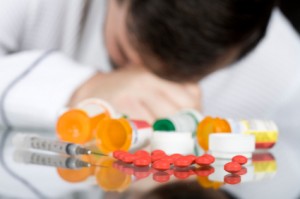Reasons to Choose Outpatient Stimulant Addiction Treatment
Stimulant addictions over the last 20 years have wreaked havoc across the nation. It’s no longer the cocaine abuse that exploded into crack addictions, or the prescription amphetamines, or illicit amphetamines, but, now we are dealing with the drastic rise in methamphetamine home productions, and cathinones such as bath salts and khat.
This widespread use of stimulants has left researchers in the medical community with no alternative but to make more concessions for treatment options easily accessible and available to the growing population of stimulant abusers.
Outpatient Stimulant Addiction Treatment
The consequences of stimulant abuse are more than just consequences to the addict. Families and others are feeling the impact and addicts are losing their abilities to function in normal society because stimulant addictions cause serious physical and mental health impairments.
Outpatient treatment has proven successful for those individuals who are committed to the programs and offers many of the same beneficial strategies of detox, psychotherapy, counseling, education, resources, and after care support. Although, traditionally, less intensive than inpatient treatment alternatives, the explosive growth in stimulant abuse has led to greater awareness and efforts to focus on effective treatment approaches have expanded throughout outpatient treatment models.
Reasons to Choose Outpatient Stimulant Addiction Treatment

With outpatient care it is easier to stay close to your loved ones.
According to the Substance Abuse and Mental Health Services Administration, “Because of recent health care reforms, most individuals who seek help for stimulant dependence now receive treatment at structured outpatient treatment programs.” Intensive outpatient programs are being offered to specialize in stimulant addictions and the programs are being offered in convenient locations, easily accessible, and with treatment schedules that are much more flexible to help the addict remain engaged throughout the program duration.
Time is a key element of treatment. In chronic stimulant addictions or long term use, there are usually multiple physical and psychological impairments that need to be addressed along with the familial, environmental, social, and other determinant factors that would influence the addict and their ability to maintain sobriety. Most people would prefer to be able to manage their work and home obligations while being able to participate in treatment and they can benefit from resources and medical or psychiatric interventions that are, increasingly, being offered through outpatient program services, but, take time to appropriately resolve.
Group and peer support, education, HIV, AID’s, and other disease interventions, after care services, family services, economic services, employment training, housing resolutions, and many other supportive elements of outpatient stimulant addiction treatment help to reinforce the addict’s ability to remain abstinent and prevent relapse.



